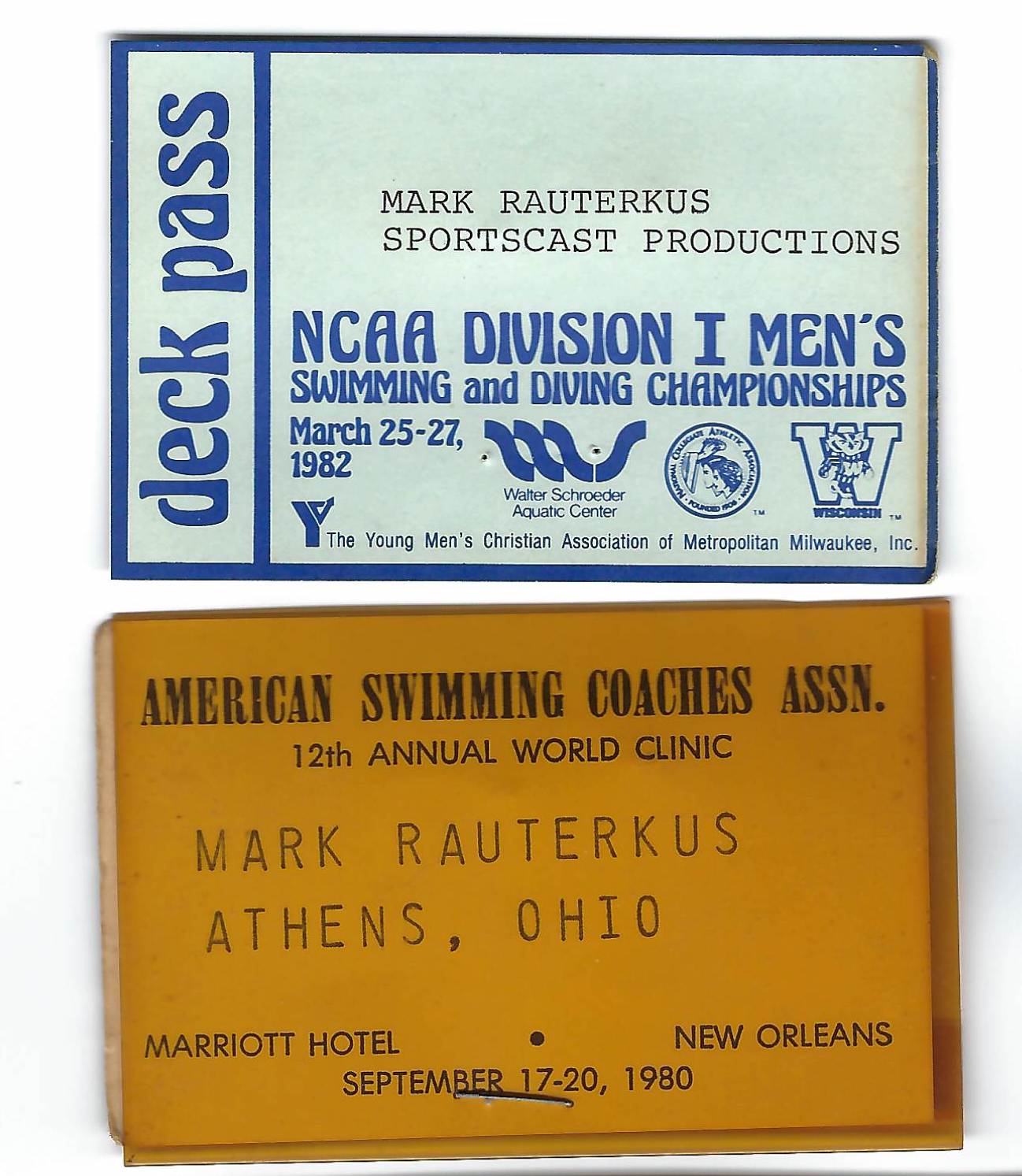Swimming World magazine would post classified ads for both those needing to hire as well as others searching for positions.
Tuesday, March 01, 1983
Friday, October 01, 1982
Thursday, September 09, 1982
Thursday, August 05, 1982
Friday, July 23, 1982
Wednesday, July 21, 1982
Thursday, June 10, 1982
Tuesday, June 01, 1982
Sunday, May 16, 1982
Saturday, April 24, 1982
Tuesday, March 30, 1982
Thursday, March 25, 1982
Thursday, March 18, 1982
Monday, March 15, 1982
Wednesday, February 24, 1982
Tuesday, February 16, 1982
Thursday, February 04, 1982
Monday, January 25, 1982
Friday, January 15, 1982
Letter on OU Bobcat letterhead from Mark Rauterkus to Swimming World
Bob Ingram, Editor
Swimming World and Junior Swimmer
PO Box 45497
Los Angeles, California 90045
Swimming World and Junior Swimmer
PO Box 45497
Los Angeles, California 90045
Dear Mr. Ingram,
Run. "No thanks coach. I like the water. It protects me when I trip."
A socialized water wizard thrives chlorinate stench, broad shoulders and the arrival of the latest time standard. These youngsters seem to be bred for water with gills, fins and bleach-blond hair. And, gold-medal-swimming attitudes make swimmers believe that the best and only way to supplement a swim program is with more swimming -- not running.
Beginning an enthusiastic running program takes trickery, security, challenges and a multi-million-dollar contingency contract.
Coaches fail to realize this and do not prepare for the dry-land sessions. Many coaches have started their teams with running but have quit because it does not come naturally. Vital originality and spunk is needed to keep a fish out of the water.
In an article on my program, I can explain a three season plan. It has the coach's reasoning, methods and results. Swimmers response and black-and-white photos are possible. The well incorporated scheme gets the most out of a running swim team.
I have coached with the Ohio University men, Athens Swim Club Otters, Bernal's Gator Swim Club, Greater Pittsburgh Swim Club and some summer clubs.
Does this idea interest you? I will be looking for your reaction.
Sincerely,
Mark Rauterkus
345 West State
Athens, Ohio 45701
614- (athletics)
345 West State
Athens, Ohio 45701
614- (athletics)
614- (pool)
Subscribe to:
Comments (Atom)





















